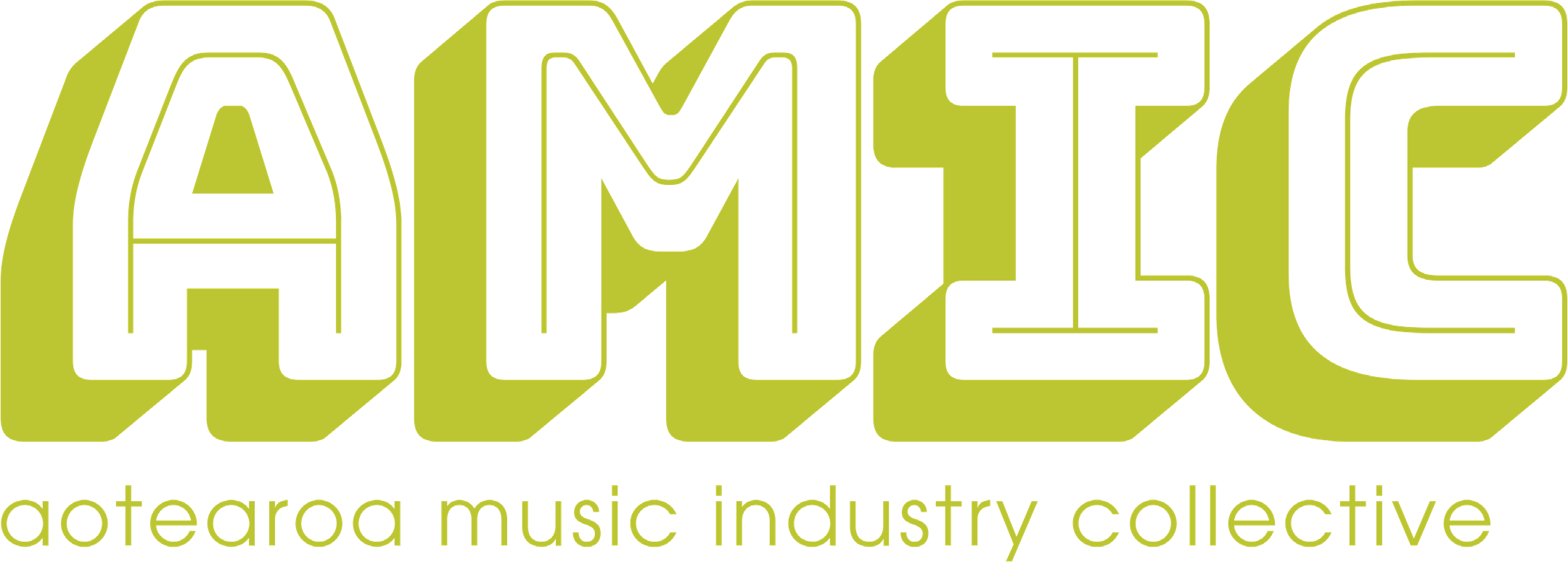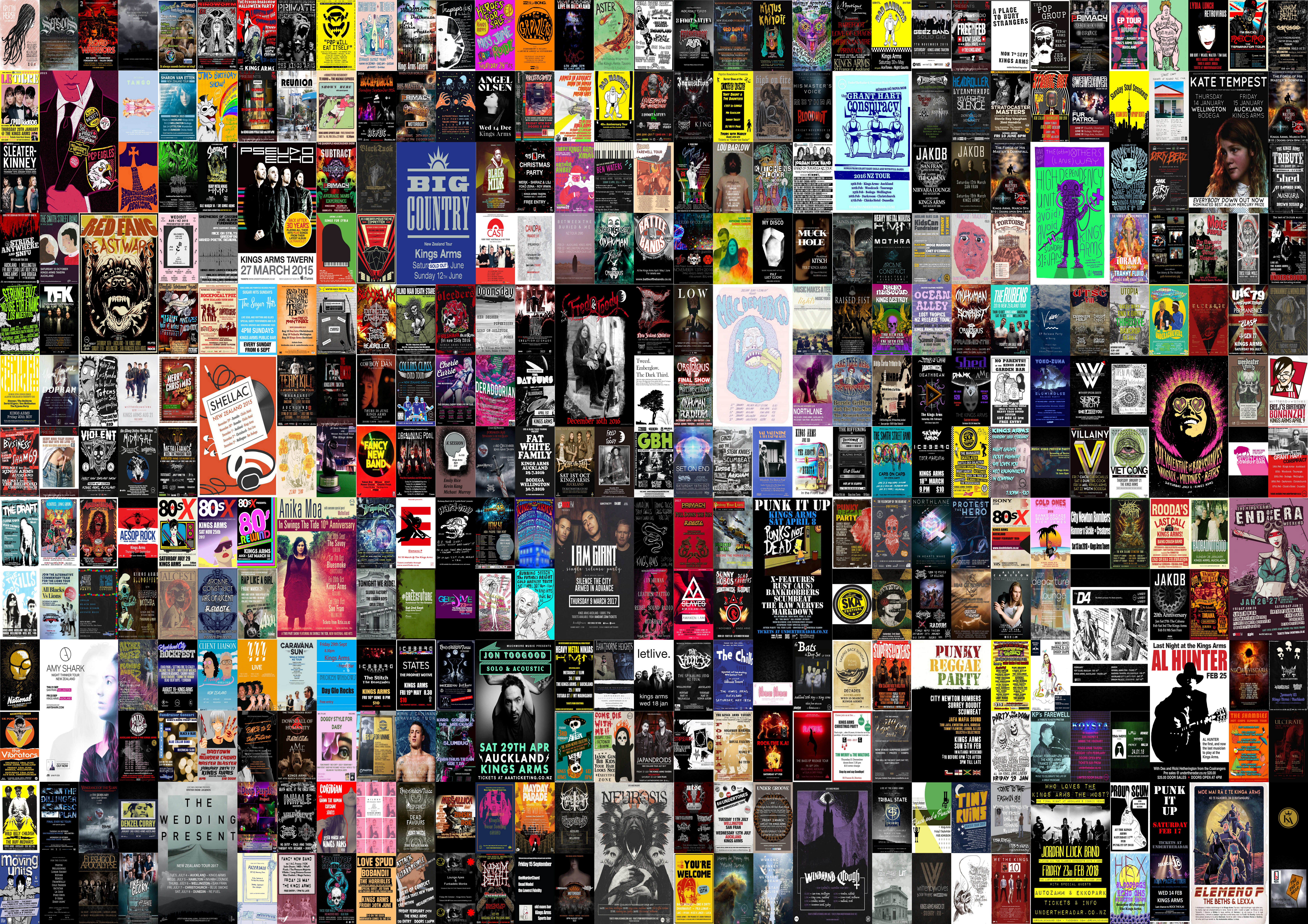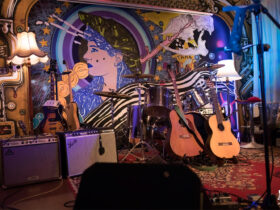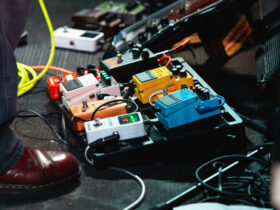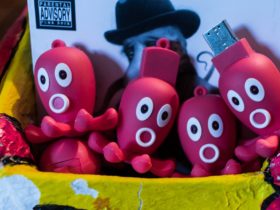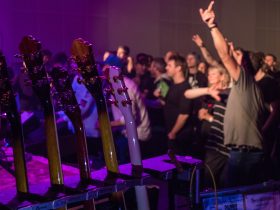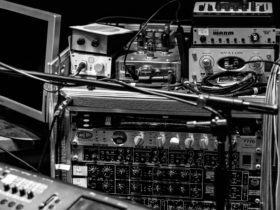Consider who your target audience is and promote specifically to them.
If your target audience is U18 (or all ages); get in touch with local high schools – ask if you can put posters up on their student noticeboards, have a poster added to their newsletters, add posts to their Facebook pages or even play a free lunchtime concert.
Many of the free magazines we enjoyed as teenagers, such as Tearaway are still available. Enquire about placing an ad in those magazines.
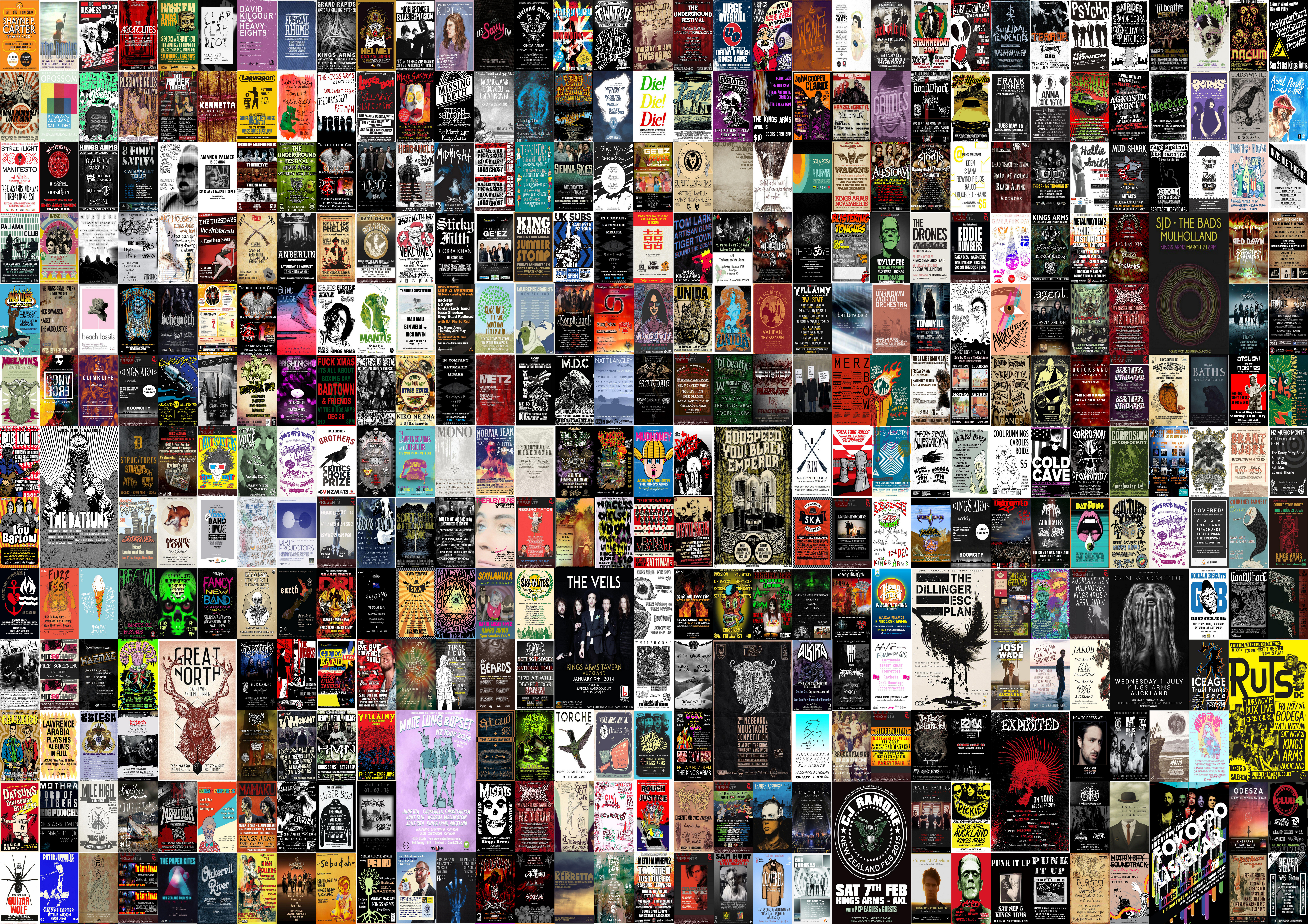
If your target audience is older; get in touch with Universities etc. – you can do the same as above. You can also ask if you can have your music played on their student radio stations.
Many cities have their own local community papers. Do some research online and find out if you can advertise in these papers. Even placing a classified advert in a local newspaper can help.
Research out what local clubs and youth groups there are in each town. Having your poster displayed on their noticeboards could help towards encouraging people to attend your show.
Promote your shows on as many platforms as possible (Facebook, Twitter, YouTube, Instagram, TikTok etc.); each platform will have different audiences and promoting your shows on every platform will help to get the word out to as many people as possible.
Consider all means of getting the word out there
As well as putting posters up on poster walls, you could look at placing flyers on car windows (for private car parks you’ll need permission from the car park owners, and you may also need to check with local city councils). Flyers can also be put in mailboxes and added to any public noticeboards, including noticeboards in information centres.
If money is an issue, shop around for cheaper printing or do it from home – think black and white printing, and fit 4 flyers on one A4 page.
Setting up an online street team can also be an excellent way of sourcing people who can help out with promotion, especially in places which you do not reside in.
Get in touch with local music stores and ask if you can send them some flyers to give to customers. Some local stores may also be happy to put your tour poster in their windows – they don’t necessarily have to be music related; options could include cafes, takeaway shops, hairdressers or even book stores.
Many venues will be happy to put your poster up around the venue, and they’ll also advertise your gig on their websites and social media pages.
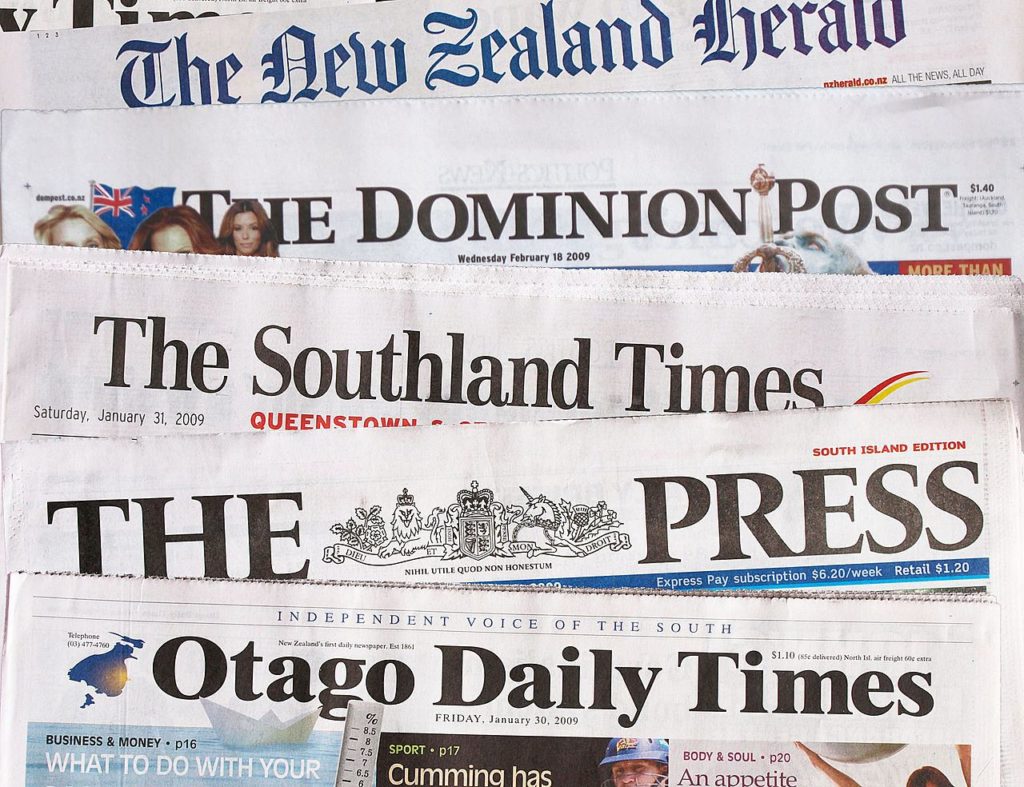
Some towns also have street-vines and other music related publications. Most of these will also have an online presence – there’s never any harm in asking if you can add your poster in the next issue.
Although costly, you could consider advertising on billboards, or on the back of buses.
If you sell t-shirts through a website such as PrintMighty, you could create an exclusive tour t-shirt with the tour dates on it to include with your other listings. Such merch can also be sold at each show.
Don’t forget about Radio stations and podcasts – many will be happy to give your tour a mention. Some local stations will even play your music to help promote the tour.
Ticket giveaways are also a good way to encourage attendance – the winner will usually want to bring some friends along.
Press Releases
Press releases are a great way to get the word out there. You can either create one yourself and send it out to anyone you can think of, or you can contact a professional PR writer who will create one for you and send it out to their media contacts for a cost.
Press releases aren’t just used online, they can also be used for making TV and Radio announcements.
Ideas of what to include in a press release include:

- Is the tour helping to promote a new release?
- Talk about each of the acts
- Give all gig/tour details (venues, dates, age restrictions, tickets/door sale prices)
- Describe your music and/or musical influences
- Talk about your future plans
- Provide website and social media links
Come up with a description: Create a couple of sentences which provide a good description of your music. These sentences can be good to refer to if anyone wants a quick answer.
Choose a spokesperson: It’s a good idea to select someone from your band/duo who is good at talking to take care of any interviews and requests from the media.
Read our Creating Press Releases article here for more info.
The day of the gig
Send some people down town in the hour or so prior to the gig and hand out flyers to anyone you consider to be in your target audience.
Purchase or borrow a sandwich board (the kind shops put outside) and put it out on the path in front of the venue with your poster attached to it. Some venues may do this already, so check in advance.
You could also put your tour poster up in the back window of any cars that you’re travelling in, just be careful that they don’t obscure the driver’s vision.
Consider having business cards available at the door – as amazing as your music may sound, some people may still forget the name of the band and having a business card will stop that from happening. If you put on a great performance, word of mouth is one of the best ways to get people to attend your next show.
Other Facebook promo

Consider the following to help spread the word:
- Set up Facebook event pages and share them around to local and national gig guide pages on Facebook, such as MNZ: Gig Space. There’s some suggestions here, and typing in the city name into the search function can give you more ideas.
- Add support acts, venues and media partners as co-hosts of your Facebook event page, as this will allow the event page to show up on others’ Facebook profiles.
- Tag, tag, tag support acts, venues etc.
What else?
- When contacting media and radio, don’t be deterred if someone doesn’t reply, or if they say no. Focus on the people who support your tour.
- Be punctual and professional when attending any interviews, promo photo shoots and soundchecks etc.
- Book local support acts who have a strong fan base – if their fans come to see their set, they may become fans of your music after hearing you play.
- Ask local media if they can send someone along to review and/or photograph your shows. If they can provide coverage to some of the first shows of your tour, that will give you further promo for the remaining dates. A review can also encourage people to purchase your latest music.
- If your bio is a little outdated, or you need new imagery, sort this out before you start promoting your tour. Information about writing a bio can be found here.
